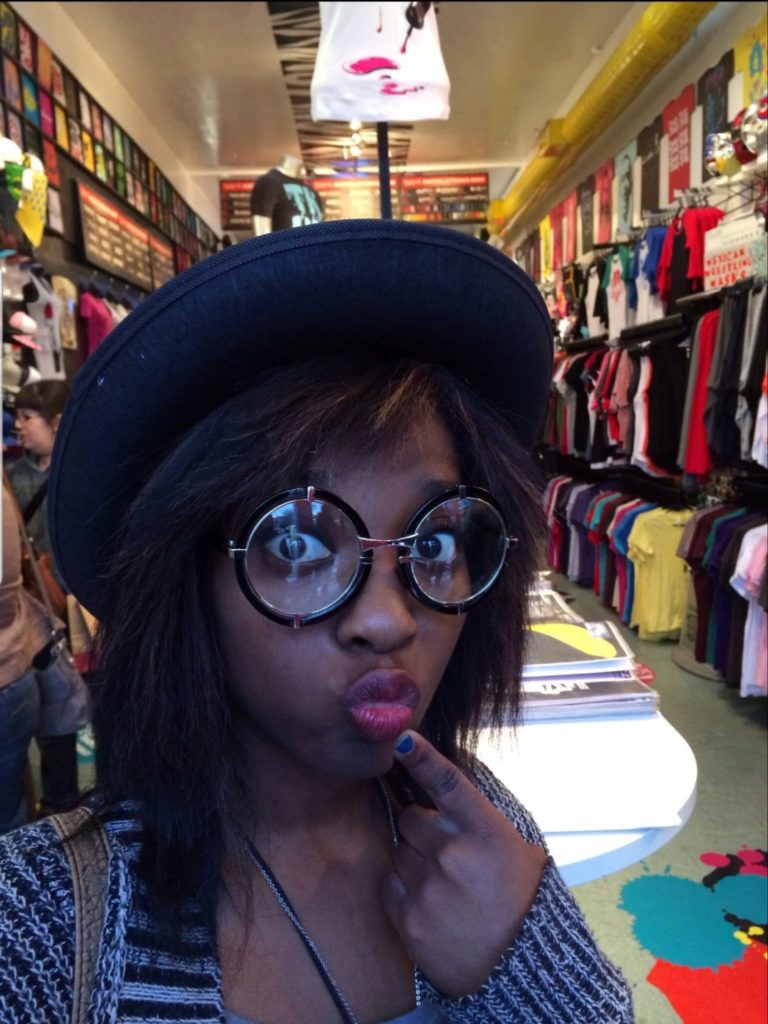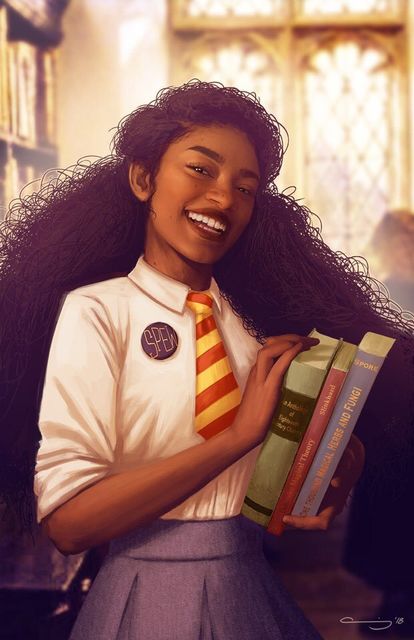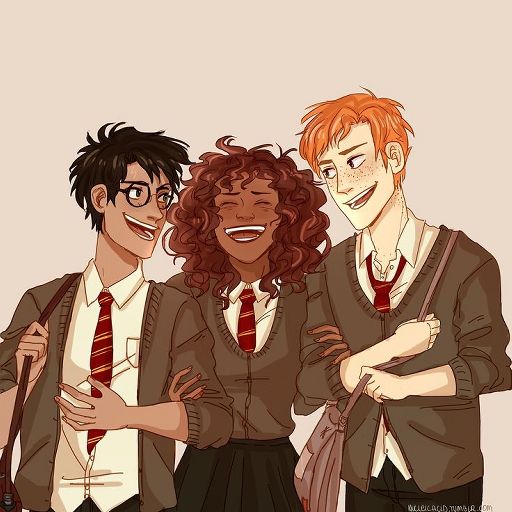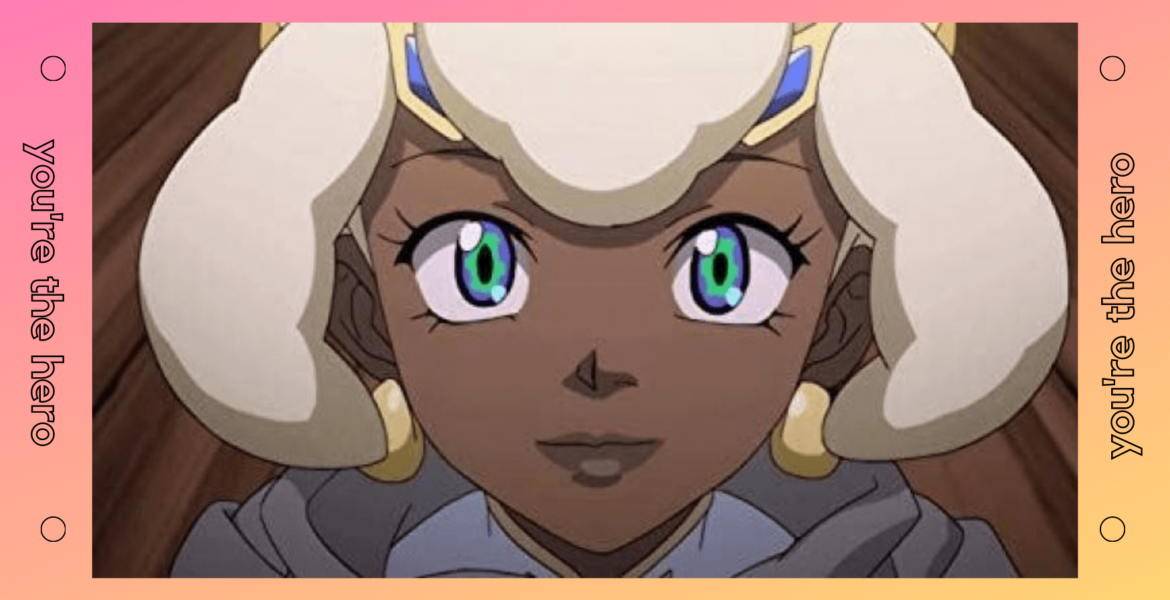I remember the first time I saw a dark-skinned anime character on screen.
It was only for a few short clips, during Bandai’s quintessential Coming Soon trailers that always played at the end of the Mobile Suit: Gundam Wing VHS tapes my older brother and I borrowed from the library—but it stuck with me for the remainder of my childhood.
As Outlaw Star’s logo popped on the TV screen, its intoxicating theme song playing in the background, she popped up: beautiful brown skin, glowing green eyes, and flowing white hair that cascaded in a delicate braid around her body like a halo: Aisha Clan-Clan.
“Her skin’s like mine,” I remember thinking. “She looks like me!”
I was so enthralled in drinking in the image of this character that so strikingly looked like a gorgeous Black woman, that in that moment I didn’t even notice two of Aisha’s most damning features: cat ears and a tail.

It wouldn’t be until I was much older that the crushing realization would fall upon me—Aisha Clan-Clan wasn’t Black…she was just a cat girl with brown fur. An almost laughable, hilarious realization—if it weren’t in actuality, really damn sad.
A similar thing would happen, without fail, with every other character I’d come across in my youth: Anthy from Revolutionary Girl Utena, Nadia from Nadia: Secret of Blue Water, Katara from Avatar: The Last Airbender, Hermione Granger from Harry Potter. Each time I would stumble across these characters, I’d feel that familiar hiccup in my chest. That bright and euphoric “She looks like me!” refrain that would echo for days in my head, only to discover later on that the heroine in question was either in fact white or simply not a Black girl.
Which, after a while, caused something deep inside me to fissure at the edges, to turn those old feelings of euphoria into pangs of resentment. Instead of marveling “She looks like me! She’s Black too!” The words evolved into: “Why isn’t she Black? Why are there never any Black people?”
Why indeed?
From the moment my family immigrated to the United States from Burundi, I was inundated with media: TV, films, anime, manga, books—the works., It was how I learned English — by watching the various sitcoms, Disney movies, and anime that my parents sent my brother and I. It was how I learned to make sense of the world around me—through what I saw and what was paraded not only in my day to day life but in the fictional stories that were spotlighted in the images I consumed..
I escaped into fantasy realms where dragons lived and magic pulsed in the very blood of the characters. I dived into tales that showcased a future of technological marvel and fantastical adventures that made my heart race with excitement.
But I never saw myself.

I never found a character that embodied me in all my complex, multi-layered thoughts, feelings, and experiences as a Black girl. And after a while, I internalized the assumption that I wasn’t allowed to find one.
I “realized” that I wasn’t allowed to be the heroine of the story, the main character, and certainly not the love interest. Life was already telling me that Black women were treated with microaggressions at its best, and hostility at its worst. But what media was telling me—what my favorite sci-fi/fantasy, and anime were reinforcing—was that Black women were an afterthought. Not even worth writing into the plot.
I can’t lie and say this didn’t affect me. This limiting belief bled into every part of my life: how I carried myself, how I regarded others—and most especially, how I regarded myself.
You’re ugly, I remember telling myself when I’d look into the mirror. Why would anyone notice you? None of the girls I saw in these stories embodied my features: dark skinned, thick 4C hair, sharp African features. And those rare few that did…well.
Many times, I had to swallow down the bitter pill that rose in my throat as I observed when a plot pitted “good” (described as pale, golden, rosy) against “evil” (described as dark, ugly, savage).
Many times, I felt myself cringe when a character was described as the definition of “true” beauty and femininity, with words like delicate, milky-skinned, wispy, blue/violet eyed, and blonde-haired.
Many times, I felt that fissure inside me crack wide open when a Black female character would be introduced only to be killed off, disrespected, ignored, or negated into comic relief that would only perpetuate harmful stereotypes or serve as character development for the “real” protagonist.

So what’s the point? I remember feeling by age 13. I clearly don’t matter anyway.
The idea of whiteness being the inherent default in every part of my life had so deeply cemented itself into my psyche that I never thought I had the power to challenge it…until the day I stumbled across Fanfiction.Net.
I can’t say I remember what first prompted me on the site (depending on my age, probably a strange mix of morbid curiosity and raging puberty-induced hormones) but, like with the Outlaw Star trailer, I remember the first story I stumbled upon: A Harry Potter fanfiction, where Hermione was the main character, having switched places with Harry as the new Chosen One.
I almost brushed it off as typical fanfiction fodder had it not been for the way the author described each character: Harry Potter was a dark haired, olive toned Desi boy. And Hermione? “Dark skinned, African, with bushy kinks that were happiest when they were free and untamed from any tedious fussing.” I couldn’t believe my eyes. That familiar hiccup—now barely an ember from years of disuse—flared up momentarily again, in curiosity, in astonishment. The words in my head were different this time. “You see me? You actually see me?”
From that moment on, a seed was planted—one that was subtle, but powerful in its manifestation. One that shifted the way I’d been taught to look at myself, and the stories that I loved so much. It began with Harry Potter—I read every story that subverted the tropes and coded the characters in the ways I’d always envisioned them: Harry as a Desi boy, Hermione as a Black girl, Tonks as a Trans woman. It all felt so new, but more than that, it felt right.

I moved on to other stories: beloved anime tales, favorite science-fiction novels, exciting fantasy epics. I read them all until my eyes strained from the effort, but I still couldn’t get enough. Because it wasn’t enough—I had one more thing to do. That ember that had first ignited in my body was fully aflame now. After years of being pushed down, it was screaming at me to go forth and give in to the yearning I’d been nursing for so long. So I sat down at my computer, opened up a blank Word Doc, and began to write.
Surprisingly, the stories came easily. Considering how deeply they’d been held inside my heart, it was as if they’d been patiently awaiting their moment. I took baby steps, subverting tropes and characters from some of my favorite series (like Harry Potter, Lord Of The Rings, and The Vampire Chronicles), and adding in self-inserts for others (like Sailor Moon and The Mortal Instruments). I had the power in my hands to shape the plot, lead the story where I wanted it to go, and bring to life the characters I had always wanted to see.
I centered myself, for once. Right in the middle of the magic.
The thing about fiction is that even though it in itself is not real—its effects still bleed into reality. I had internalized the lie that to be a Black woman was to be discarded, overshadowed, and simply ignored. Unable to speak up, and unable to embody myself as anything other than a monolith of damaging mindsets and harmful misconceptions.
But through fanfiction, I was able to shift into a new reality that embraced the beauty of who I was in all ways, always. I truly realized the nuances of my being, my experiences in this world, and see them as a pillar of power, a gift—rather than a burden.
And today, we’re seeing the effects of unspoken voices finally being able to take center stage evidenced by works like Steven Universe, Children Of Blood And Bone, Jordan Peele’s entire filmography. Stories are pure imagination, but they cannot resonate if they don’t reflect the beautiful diversity of our society. I still sometimes feel the echoes of that painful period of my youth reverberating in my stories. But there’s no greater disservice than denying myself the right that so many others willingly wield without a second thought. And with this matured perspective, and the gifts I’ve learned both writing and reading fanfiction—I know I’m in a position to change expectations for the better for the next generation. And hopefully, save them from the crisis of identity that I myself grappled with growing up with a white-centered media.
So with that being said, I think it’s important to share that the other day, I opened up a blank Word Doc for the first time in a few weeks. Not to pen an original story; no, this particular tale had been dying to be revisited, from the moment I’d gotten the inkling of an idea in my 5-year old mind. I turned on Youtube, selecting the familiar, upbeat theme song. And I began, with renewed confidence and self-assurance in myself, to write: “Aisha Clan-Clan was the first Black commander her Empire had seen in centuries….”



What an insightful account. Thanks
I thoroughly enjoyed this read so much. I grew up reading and occasionally writing Fanfiction. Websites like Fanfiction and Wattpad were staples in giving me the opportunity to not only explore my imagination but also see myself in it. Thank your for this!
Beautiful. Thank you